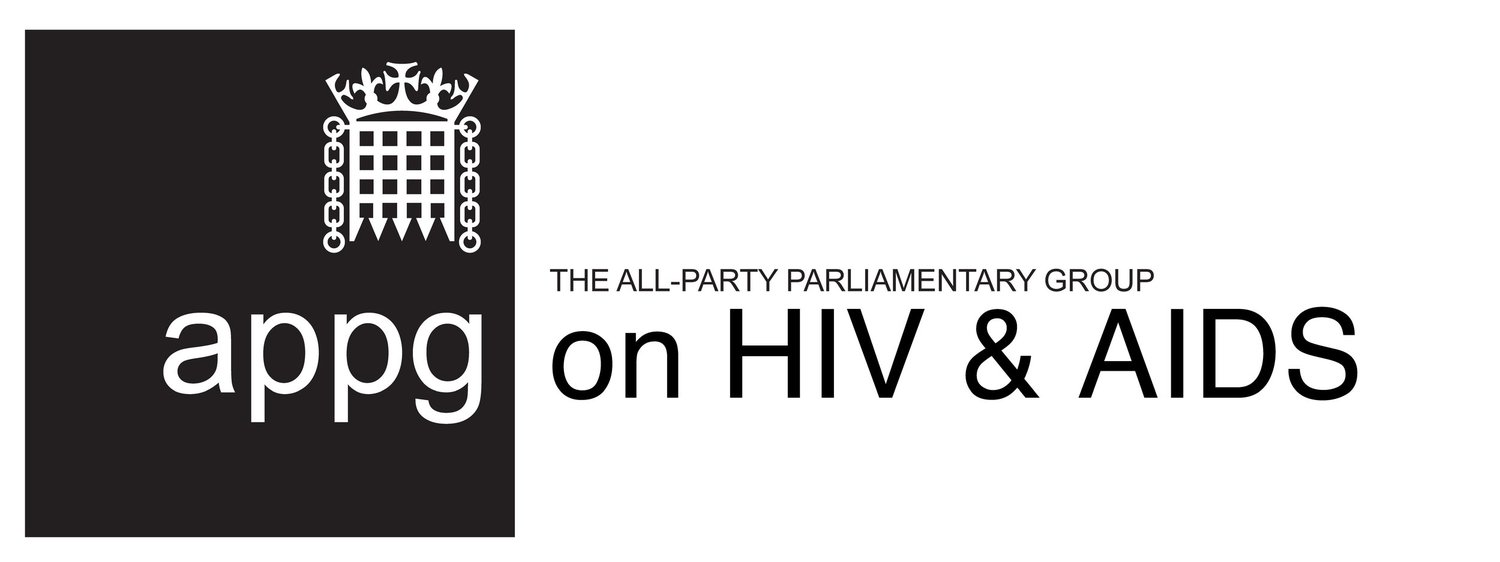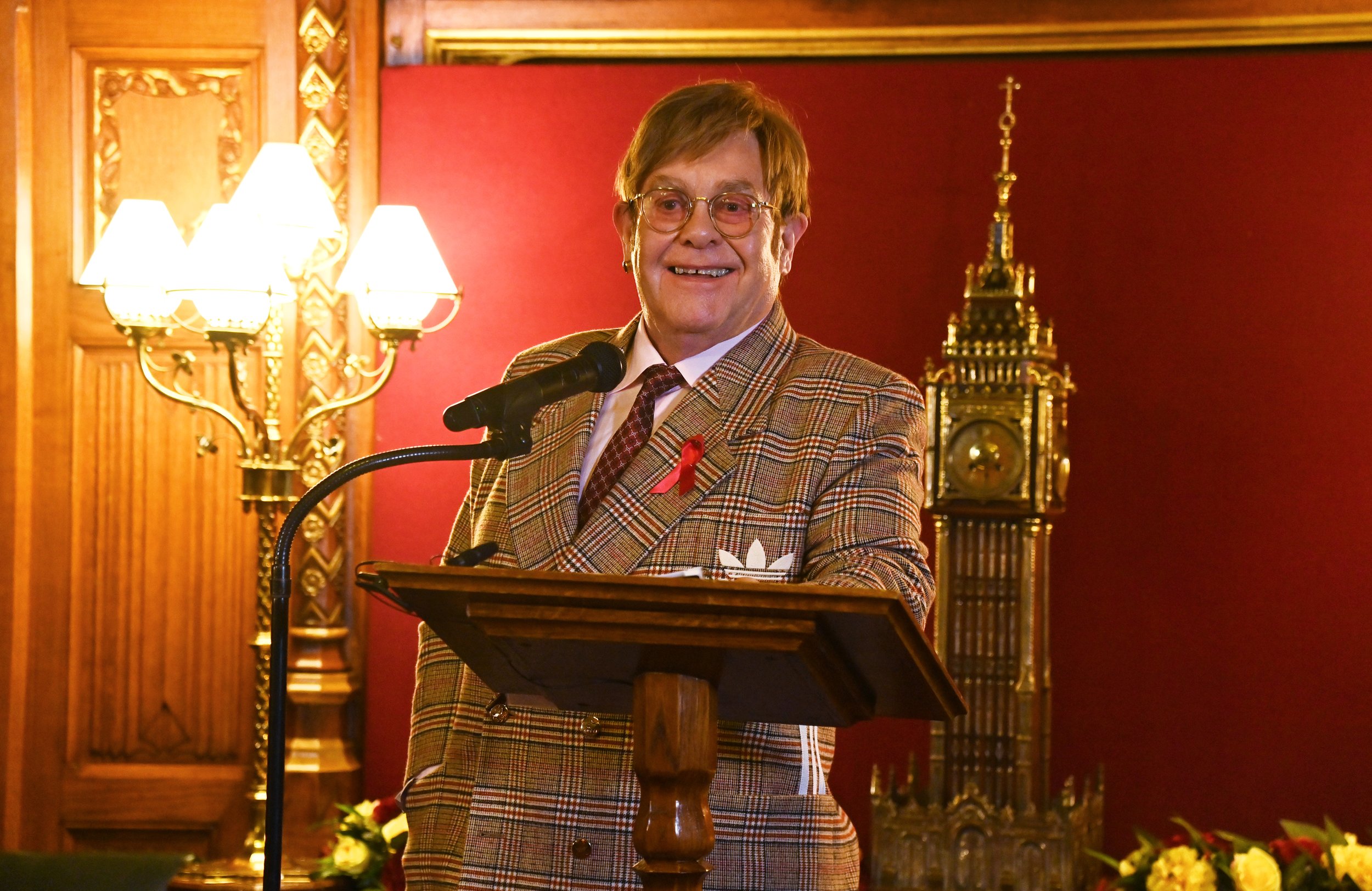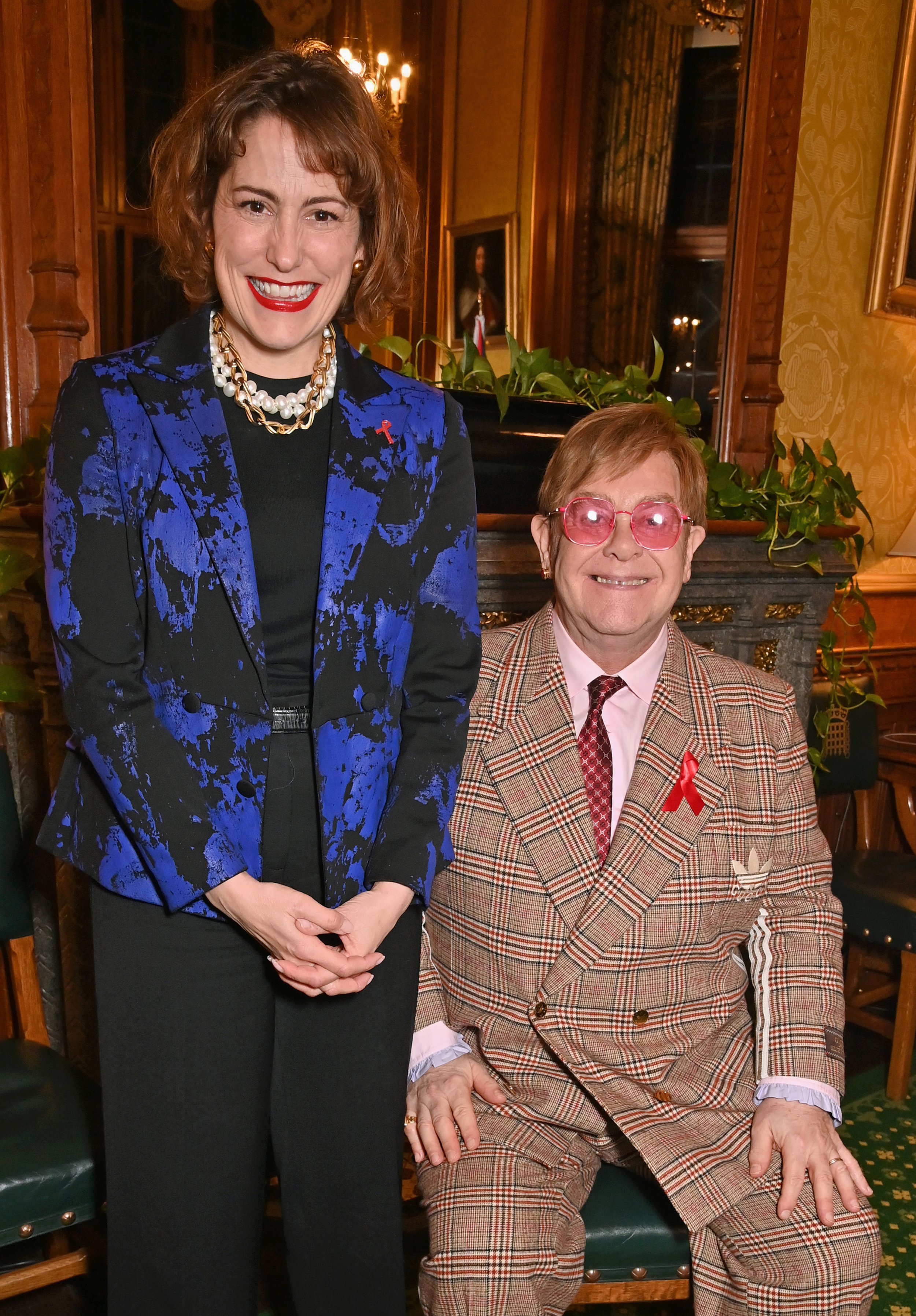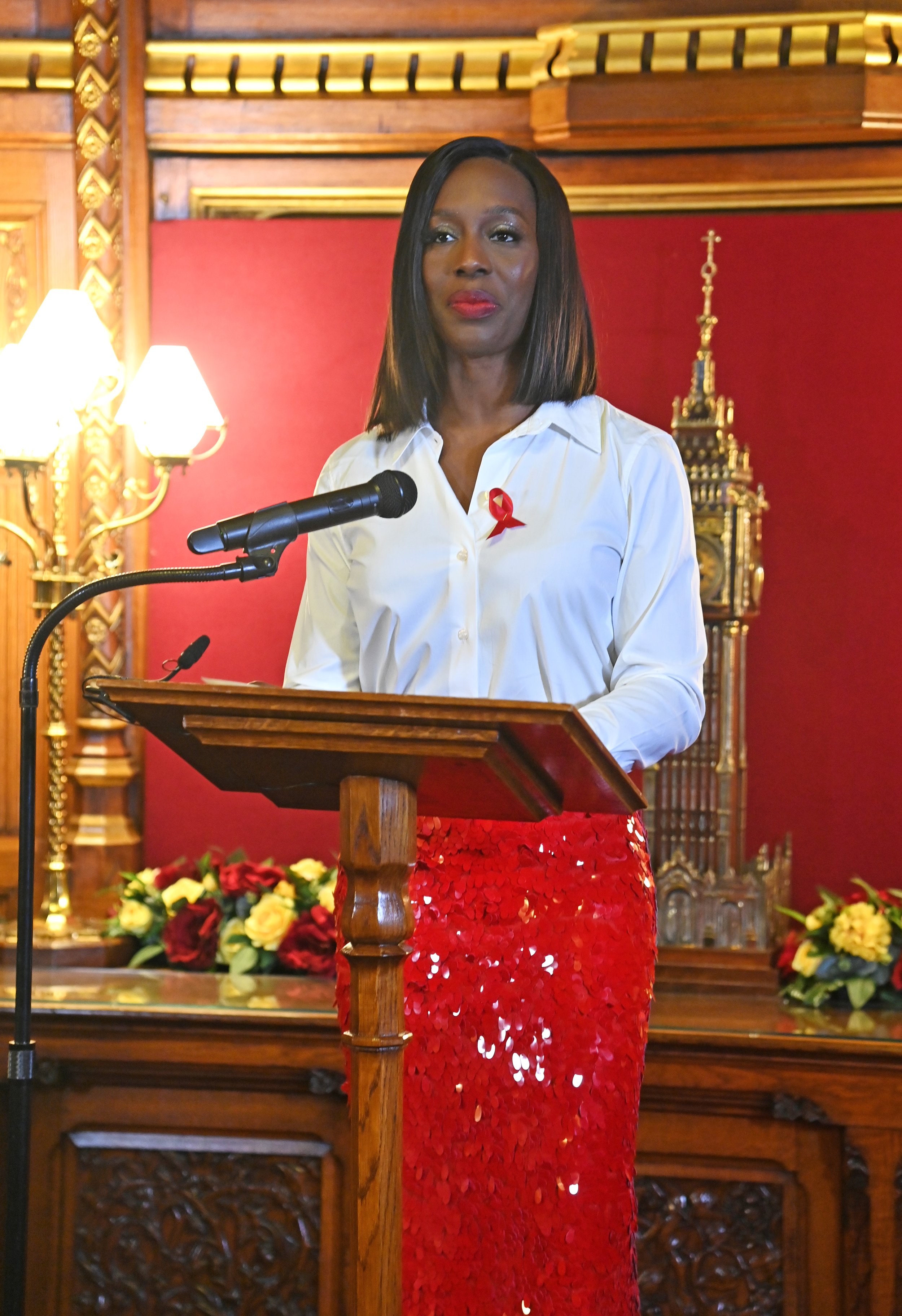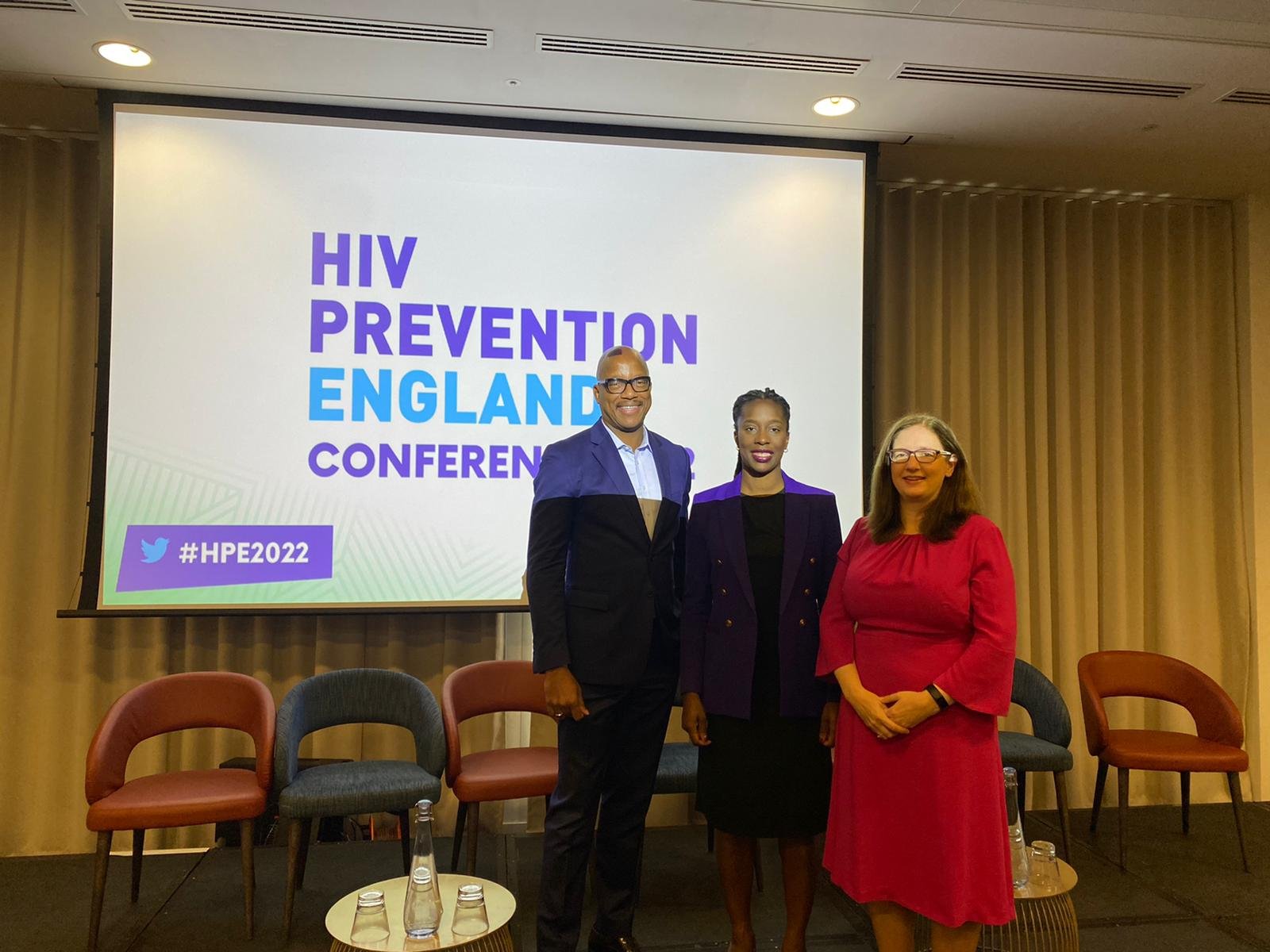Elton John was honoured at a reception hosted by the All Party Parliamentary Group on HIV/AIDS at the Speaker's House today in recognition of his enduring commitment to ending the AIDS epidemic, both personally and through the work of the Elton John AIDS Foundation.
APPG Officers with Sir Elton John photo by Dave Bennet
Earlier today, Victoria Atkins, Secretary of State for Health and Social Care outlined how the UK Government will be expanding the hugely successful NHS opt-out blood-borne virus testing programme for HIV and Hepatitis to 46 new emergency departments across England. Expansion of the programme, from the current 33 sites to every high prevalence area, could identify a significant proportion of the estimated 4,500 people living with undiagnosed HIV, prevent new transmissions and save more lives.
Addressing a packed Speaker's House, Elton John welcomed the UK Government's further roll-out of opt-out testing: "My Foundation and partners did a three-year pilot (2018-2021) in the South London boroughs of Lambeth, Southwark and Lewisham. This pioneering approach showed beyond a doubt that opt-out testing works in A&E. Automatic testing gets to people earlier, which means less HIV transmission, less illness, less death and by the estimate of health economists, £50 million saved for the NHS. So, to hear today from the Secretary of State that this work will be expanded to every high HIV prevalence area…46 new Accident & Emergency departments in local hospitals across England…more than doubling the number of HIV tests, is truly wonderful news."
He also shared his personal reflections on the long fight to end the AIDS epidemic and called on all political leaders to do more: "Whoever wins the next general election can help to end AIDS worldwide by 2030. Starting right here at home. In the UK, new HIV diagnoses are down 46% since their peak in 2015.[1] We can be the first country in the world to defeat this awful virus. Playing our part, fulfilling the United Nations goal and showing other nations how it's done."
"In the 1990's, I visited far too many homes where people were dying of AIDS. I remember the helpless, suffocating feeling as one after another they succumbed, not knowing if it would ever end. These memories are etched on my soul, and they taught me a lot. I saw, as millions did, images of my friend Princess Diana publicly shake the hand of a man dying of AIDS and realised a simple act of compassion is a force to be reckoned with."
"My Foundation was born the year after Freddie died. Spreading love and compassion was our compass. Leaving no one behind was our practice. 31 years later, we have achieved so much. We've raised close to half a billion pounds, funding thousands of programmes around the globe. We've funded almost every HIV charity in the UK and every major place in the NHS where you can get treatment for HIV. We've reached 100 million people globally and we've saved 5 million lives. Never did I think my Foundation's work would turn into a lifelong commitment or that so many people would need our help."
"I implore you not to waste your allotted time as political leaders. Take action and push things a little further than might feel comfortable. And as you do, I can promise you this: I will be there with you. Fighting for equal access and fair treatment. Giving everything I can for the rest of my life to ending HIV/AIDS. Because we must stay the course. I long to applaud a room like this, after this epidemic has gone."
Sir Elton John photo by Dave Bennet
With 39 million people around the world living with HIV and 1.3 million people newly infected last year, Elton John also spoke about the need for the UK to do more internationally: restoring the UK's full commitment to The Global Fund to fight AIDS, TB and Malaria, establishing new models of partnership and engagement, and protecting civil liberties.
"Abandoning ending AIDS wouldn't just be a failure for the 39 million people living with the disease. We'd be failing to prepare for whatever global virus comes next, because we know that fighting AIDS is pandemic preparedness in action. So, we should be increasing our commitment to the Global Fund, not cutting it. And if the Government is serious about ending AIDS, I call on it to fully restore the UK's commitment, to pledge £1.46 billion pounds this current three-year cycle and ensure the Global Fund is fully financed."
World AIDS Day will be commemorated on 1st December and despite advances in treatment, 630,000 people died of AIDS related diseases in 2022. Worldwide, HIV rates are rising faster among young people than in any other group and more than half of people living with HIV are women and girls. Over nine million people are not currently accessing treatment that could save their lives, all too often because shame and stigma is holding them back.
Sir Lindsay Hoyle, Speaker of the House of Commons, welcomed guests from all the major political parties and leading HIV/AIDS organisations to the event, and stated: "It is an honour to host this reception for Elton John in recognition of his work to end HIV and AIDS. Sir Elton has been an unwavering advocate in the fight against HIV and AIDS for four decades. His efforts have helped destigmatize the disease, promote education, and provide crucial support to those affected, making him a true champion in the goal to end AIDS."
Florence Eshalomi MP, Co-Chair of the APPG HIV/AIDS, also welcomed the Government's announcement and praised Elton John for his ongoing work: "We are delighted that the Government today has taken concrete steps to increase and normalise HIV testing in the UK. The APPG believes that as Parliamentarians, we should play our part in addressing this epidemic and this is something we have been calling for following the successful roll-out of opt-out to extremely high prevalence areas. We also echo Elton John's comments that whilst this will have a very real and significant impact, there is still a huge amount that needs to be done to end the AIDS epidemic both here in the UK and abroad."
Anne Aslett, CEO of the Elton John AIDS Foundation, said: "The Elton John AIDS Foundation was set up by Elton at his kitchen table in Atlanta, Georgia in the 90's when all we could do for people living with AIDS was to provide food and comfort and ultimately end of life care. Thirty years on and the Foundation has raised more than $565 million for HIV/AIDS grants globally and funded more than 3,000 projects in over 90 countries. Spreading love and compassion has always been our compass; leaving no one behind our practice. We are delighted by the UK Government's announcement today to further expand opt-out testing – an approach we first piloted with our partners in Londonboroughs in 2018. This policy will keep people in care, save lives and is a crucial step towards meeting the goal of ending new HIV cases in the UK by 2030."
Sir Elton John, David Furnish, Anne Aslett photo by Dave Bennet
David Furnish, Chairman of the Elton John AIDS Foundation, said: "We have come so far towards an AIDS free future and the UK Government's decision to expand opt-out testing will ensure more people get the right care and treatment they need to live full and healthy lives. If politicians on all sides commit to the actions outlined by Elton John today, we have a real chance of achieving something incredible by becoming the first country to stop new HIV transmissions."
Victoria Atkins, Health and Social Care Secretary, said: "Less than three decades ago, HIV could be a death sentence. It was often - and wrongly - considered a source of shame, and diagnoses were hidden from friends, family and society. But today, thanks to effective treatments, it is possible to live a long and healthy life with HIV.
Secretary of State for Health and Social Care Victoria Atkins MP with Sir Elton John photo by Dave Bennet
"The work of the brilliant campaigners and charities, including the Elton John AIDS Foundation, whose efforts have helped us get where we are today rightly deserve to be celebrated. As well as promoting prevention for all, the more people we can diagnose, the more chance we have of ending new transmissions of the virus and the stigma wrongly attached to it. This programme, which improves people's health and wellbeing, saves lives and money."
Keir Starmer, leader of the Labour Party, said: "The tireless work of campaigners, survivors, scientists, medical staff and others has meant that, for the first time, we can say that the end of the HIV/AIDS epidemic is on the horizon. We now have a world where HIV positive people can live freely and love freely, something so many people were once too scared even to dream. The incredible progress made so far, resulting in the expansion of the NHS opt-out blood-borne virus testing programme, should be widely celebrated."
Keir Starmer and Sir Elton John photo by Dave Bennet
"Sir Elton John has been a constant voice championing this cause throughout his life. He has raised millions of pounds for frontline services and saved lives by breaking down the stigma that sees lives lost in the dark. We are forever grateful for his dedication to public service, and his life-saving work. But if we are to leave no one behind, there is much still to do. An incoming Labour government will hit the ground running, because we must meet our target of ending new HIV cases in the UK by 2030. That's why the Labour Party will commission an update to the HIV Action Plan as soon as we come to government."
Winnie Byanyima, Executive Director of UNAIDS and United Nations Under-Secretary-General, said: "Over 40 million lives have been lost to AIDS. Even now, AIDS claims another precious life every single minute. The AIDS pandemic is not over, but it can be. Elton John has fought tirelessly for four decades to bring an end to this terrible disease and to the injustices which drive it; now it is politicians who must act and put in place the programmes and policies needed to support communities both domestically and internationally to end AIDS for all."
For further information, images and b-roll, please contact:
mary.pavlu@eltonjohnaidsfoundation.org; jess.ord@eltonjohnaidsfoundation.org
